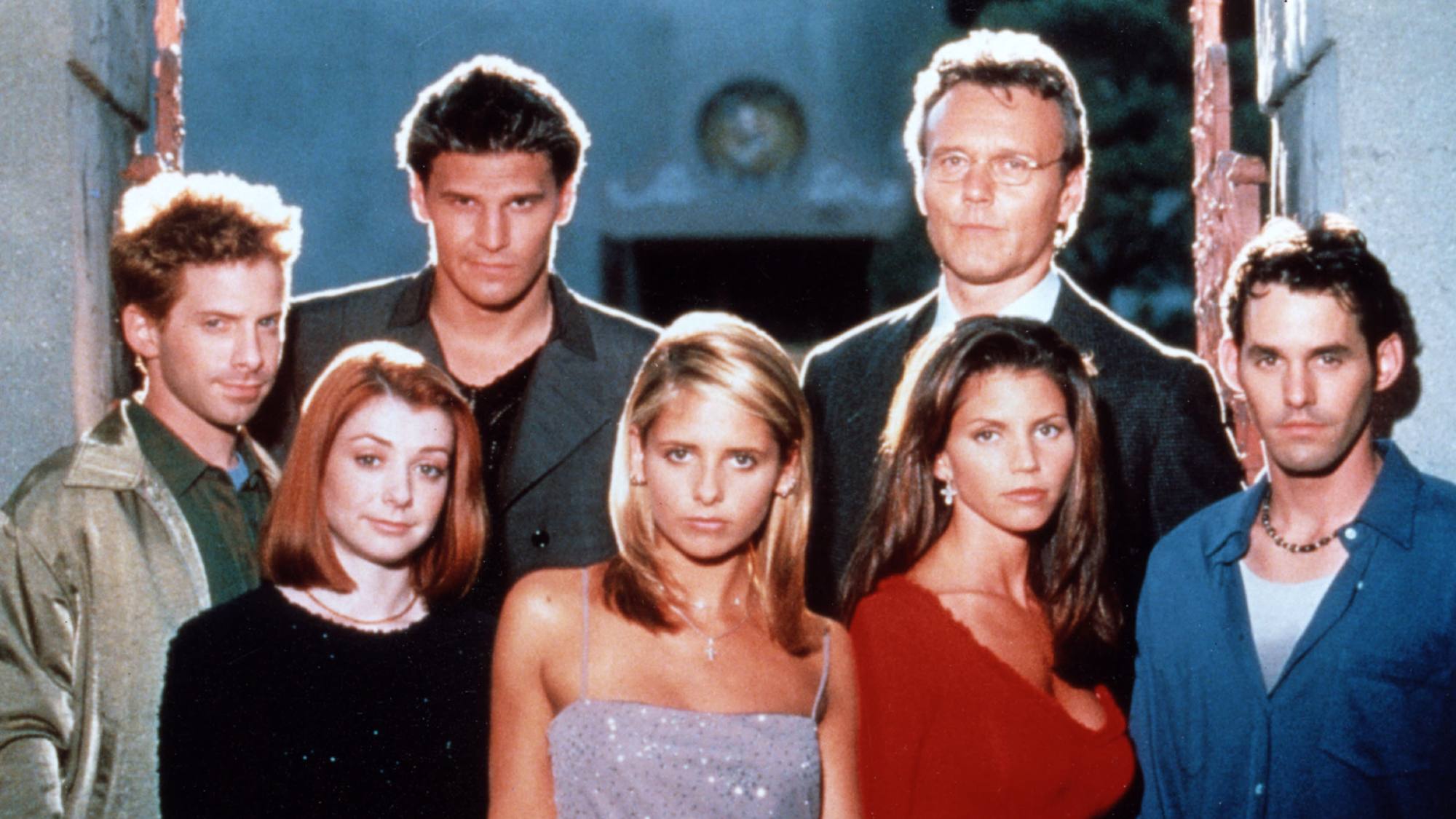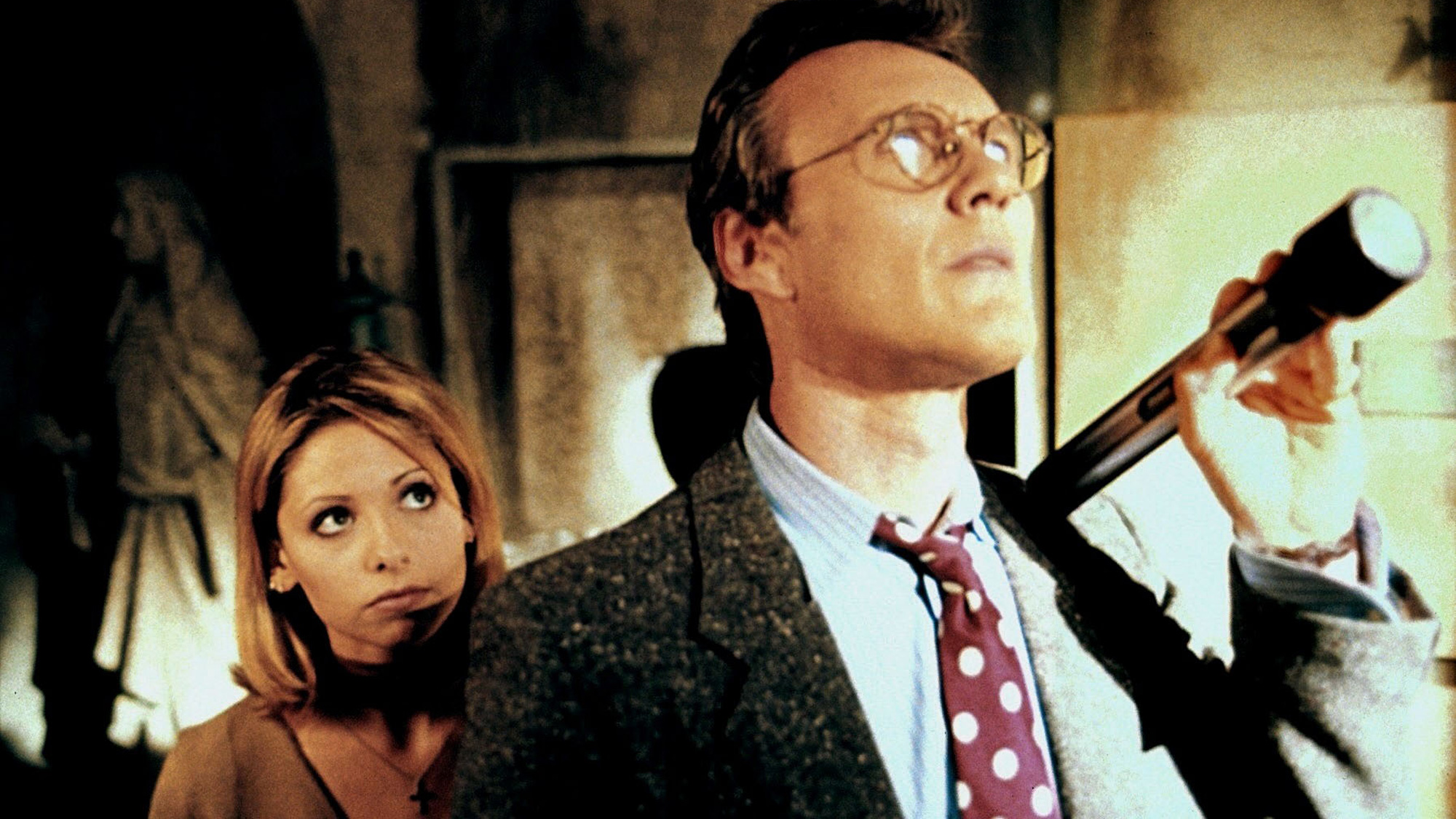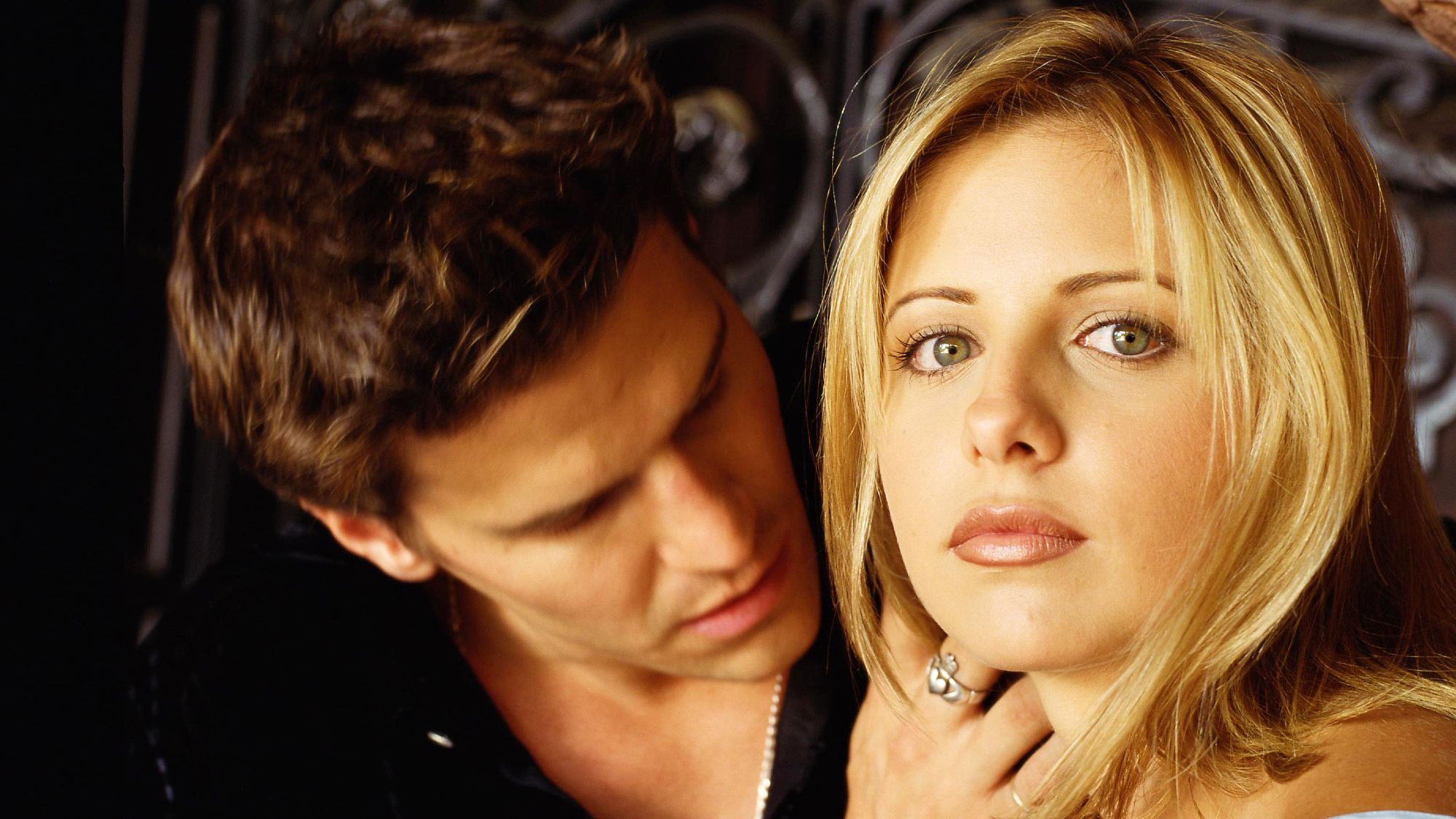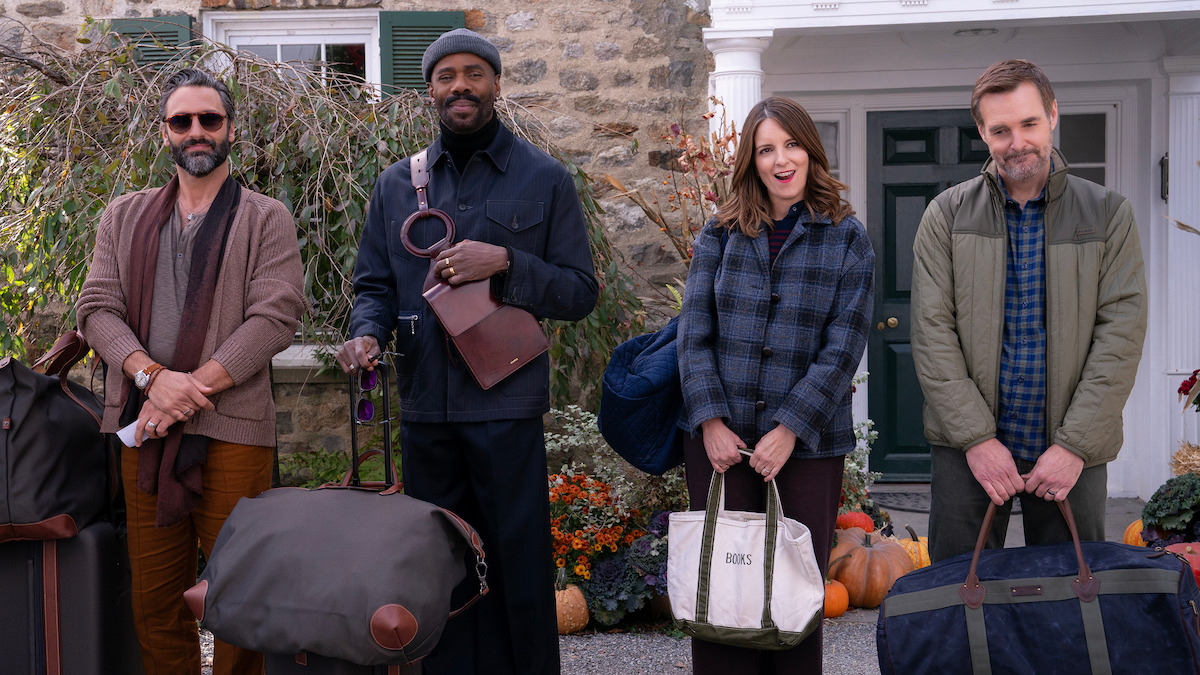
When I first decided to check out “Buffy the Vampire Slayer” in 1997, thanks to the build-up of critical acclaim, I had to catch up on first-season episodes by watching summer reruns on the WB, hoping to see as many as possible before the second season premiered.
The process of watching TV has changed a lot since then, and I would’ve loved the chance to fill in my “Buffy” knowledge by streaming episodes on demand for free. That’s exactly what people can do now, since all seven seasons of the show are now available on Tubi, waiting to be revisited or discovered for the first time.
"Buffy the Vampire Slayer" is streaming on Tubi
I started watching “Buffy” during a formative period when I was about the same age and in the same stage of life as the characters, but I’ve gotten just as much enjoyment out of it when revisiting it decades later. The show is so beloved and influential that it’s easy to forget the skepticism that greeted its premiere, when it was just a TV series on an upstart network based on a relatively unsuccessful movie.
The long-form TV format allowed creator Joss Whedon to effectively explore all the themes that were poorly realized in the 1992 “Buffy the Vampire Slayer” movie, with a rich and detailed supernatural world that expands as the series progresses.
‘Buffy the Vampire Slayer’ mixes the fantastical and the comedic
One thing that immediately sets “Buffy” apart is its sense of humor, in the way that teenager Buffy Summers (Sarah Michelle Gellar) approaches her mission as the Slayer. She may be the once-in-a-generation chosen one who’s destined to fight vampires and other supernatural creatures, but she’s also a snarky high schooler, and she’s as quick with a quip as she is with a wooden stake. The same goes for her best friends Willow Rosenberg (Alyson Hannigan) and Xander Harris (Nicholas Brendon), ordinary teens who join her battle against evil.
Over time, Whedon’s wordy, sarcastic writing style has become something of a cliché, especially as it’s been adopted as the default tone of movies in the Marvel Cinematic Universe — for which Whedon wrote and directed the first two “Avengers” movies.
But the writing in “Buffy” still feels clever and fresh, and it’s fitting for a group of jaded teens who are sometimes as annoyed at having to battle vampires as they are about writing essays for class. It’s still impossible to mistake the distinctive dialogue on “Buffy” for anything else, even as it’s been imitated and diluted by other shows and movies over time.
A vast and varied cast populates the show’s world

In addition to Buffy and her two best friends, the core cast includes her mentor and quasi-supervisor Rupert Giles (Anthony Stewart Head), a member of the Watchers’ Council that oversees the Slayers. Other allies and enemies come and go, including the brooding vampire Angel (David Boreanaz), an early Buffy love interest who later leads his own spin-off series.
Unlike a lot of shows that begin in a high school setting, “Buffy” allows its characters to truly grow and change, which leads to some rough patches in later seasons as everyone seems to be constantly miserable, but also realistically depicts the difficulties of transitioning into adulthood.
Whedon and the other writers pay careful attention to the sprawling cast of supporting and recurring characters, weaving them in and out of the story in often surprising and affecting ways. That makes “Buffy” an early example of heavily serialized TV, although there are still plenty of self-contained episodes. “Buffy” was also a pioneer of season-long storytelling, with each season focusing on an overarching villain dubbed the “Big Bad,” alongside individual episodic stories.
It helps for viewers to make note of even minor one-off characters, who may return in significant ways a season or two later. That means that, unlike a lot of vintage TV shows, “Buffy” is best experienced for the first time in order from beginning to end, in order to truly understand and appreciate the scope of the narrative and character development.
‘Buffy the Vampire Slayer’ brilliantly plays with its own format

While “Buffy” begins as a high school dramedy with different supernatural threats in each episode, Whedon always harbored grander ambitions, and some of the best “Buffy” episodes break with the established format for brilliant, audacious experiments. That includes the sixth-season musical episode “Once More, With Feeling,” often considered the show’s best, as well as the unsettling silent episode “Hush” and the powerful depiction of grief in “The Body.”
These aren’t just detours for their own sake, but integral parts of the show’s long-term narrative. The songs in “Once More, With Feeling” are catchy and fun, but the episode itself marks a downbeat turning point for multiple relationships, with real consequences for the future direction of the season.
Even episodes that seem like goofy larks often sneak up on the audience with powerful dramatic developments. “Buffy” can be fast-paced and funny, but the show always treats its characters and its world with thoughtfulness and care.
That’s what grabbed me back in 1997, and that’s what still grabs me today. “Buffy” remains one of the best supernatural TV series ever produced, and it’s hard to imagine modern hits like “Stranger Things” or “American Horror Story” existing without it. With 140-plus episodes now available to watch for free, it offers an irresistible, immersive experience for both new and returning viewers.
More from Tom's Guide
Sign up to get the BEST of Tom's Guide direct to your inbox.
Get instant access to breaking news, the hottest reviews, great deals and helpful tips.

Josh Bell is a freelance writer and movie/TV critic based in Las Vegas. He's the former film editor of Las Vegas Weekly and has written about movies and TV for Vulture, Inverse, CBR, Crooked Marquee and more. With comedian Jason Harris, he co-hosts the podcast Awesome Movie Year.

